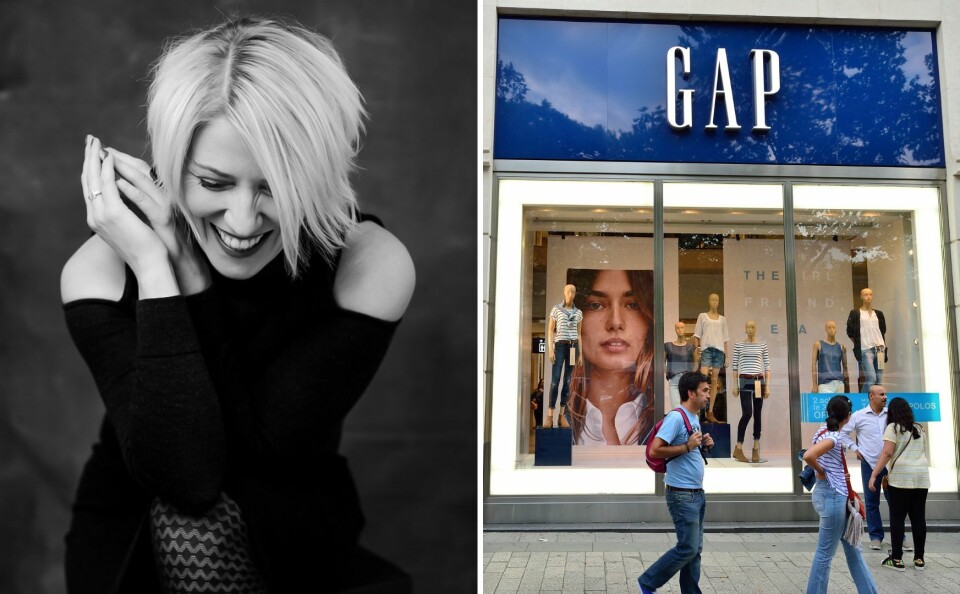-
Grand crème, café crème, au lait: how to order coffee in France?
We explain the subtle distinctions between the various terms used in cafés
-
Ballet lessons bring health benefits to over-55s in France
Online classes with the Silver Swans are transforming lives of older adults
-
Profile: Dorothée - France's beloved TV icon and screen mum
Profile of the singer, actress and TV presenter who captivated millions of schoolchildren
Career change in France: from window displays to powerful photography
‘I have found my niche at last’ - Lisa Derevycka, 49, explains her move from a merchandiser for GAP to taking empowering studio photos of women

I moved to France in 2000 with my then-husband. At the time, I was working as a merchandise manager for clothing brand GAP in London.
I had studied fine art at the University of Sunderland and previously worked with autistic children at a studio in Macclesfield, near my parents’ home.
I decided to move to London, aged 21, to expand my horizons, and when the job with GAP was offered, I took it.
Although managing merchandise does not sound particularly artistic, there were plenty of opportunities to use my creative flair.
I designed layout and window displays and worked alongside the visual team.
I found it both challenging and enjoyable.
Paris house prices meant a long commute
In 1996, I met a Frenchman who was working on Eurostar. We got married in 1999 and moved to Paris in 2000.
I was able to transfer my job at GAP to their Paris branch so continued to work for the company.
After some time renting in Paris, we decided to buy a property – we both had decent salaries and renting seemed like throwing money away.
However, a few viewings of Paris apartments soon brought us down to earth – there was no way we could afford something suitable in the city.
Instead, we did what many Parisians do: we began to look at properties within a two-hour radius of the city.
We already had friends who lived in the Bourges area, so when they told us a house had come up for sale nearby, we decided to have a look.
It was perfect: a four-bedroom stone property which came with an old cobbler’s house that I was able to convert into an art studio.
Originally, we thought we would commute back and forth, using the property primarily for weekends and holidays, but after six months we decided to move there full-time.
For me, this meant quitting my job at GAP and starting something new.
A thriving art therapy practice
Luckily, I had met several artists locally by that time and had learned about a course called CFPI, which trained artists to work with medical and educational professionals to deliver art therapy.
I completed the course in a year in 2003, training at the art school in Bourges and at a hospital and psychiatric facility in the area.
I learned to adapt my approach for different needs, teaching both adults and children, and 12 years on, I had a thriving practice, working with different schools and institutions in the area.
But once again I got itchy feet.
Photo a day challenge started something
We decided we wanted to move house, and because I knew this might mean a change of area, I started offering only short-term contracts to clients.
This gave me the freedom to wind things up if and when I needed to.
All the while, I had continued with my own art, often working in red and gold.
While I had success and exhibited in galleries around France, I found the process of producing it and showing it quite stressful.
In order to secure places in exhibitions, I also had to produce photographs of my work.
This was challenging, as red and gold can be hard to capture well on camera.
In 2008, I began to work with a local photographer to improve my skill, and set myself a challenge to take a photograph a day, study it and look at how it could be improved.
During this process I fell in love with photography.
Photography became full-time job
I published my daily photos online and gradually people began to ask me to take photographs for them.
As my work developed, I realised that the photographic art I was producing gave me great pleasure, unlike the more traditional pieces I had produced in the past.
Then an opportunity came my way.
We had found a new house just 6km from our original home, so I knew we were staying in the area.
At the same time, a local wedding photographer told me she was relocating and suggested that once my training was complete, I might like to take on the clientele she had built up.
Originally, I thought photography would run alongside my teaching, but it very quickly became a full-time job.
Empowering women through photography
My speciality is working in a studio photographing women – helping them to see themselves more clearly as individuals.
So many women find themselves existing for other people – I want to help my clients to see themselves in a positive way.
The work that I do now seems to encompass all the learning I have done in my previous roles: the art, the therapy, working with people.
I am more fulfilled than ever and really believe that I have found my niche at last.
Related articles
Career change: From IT to a tea-grower with Normandy plantation
Career change in France: Paris attack made me reflect on what I wanted
French photographers are winners when it comes to capturing nature
























